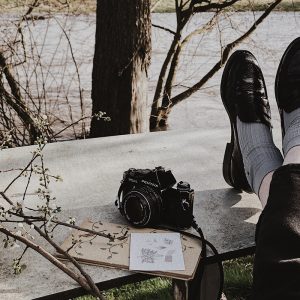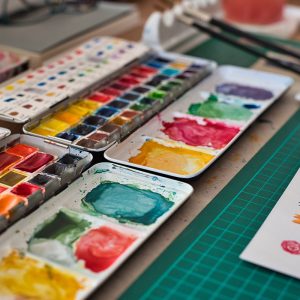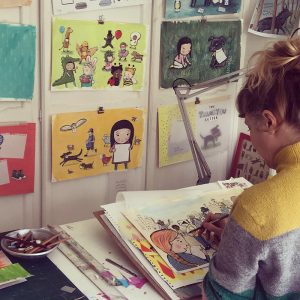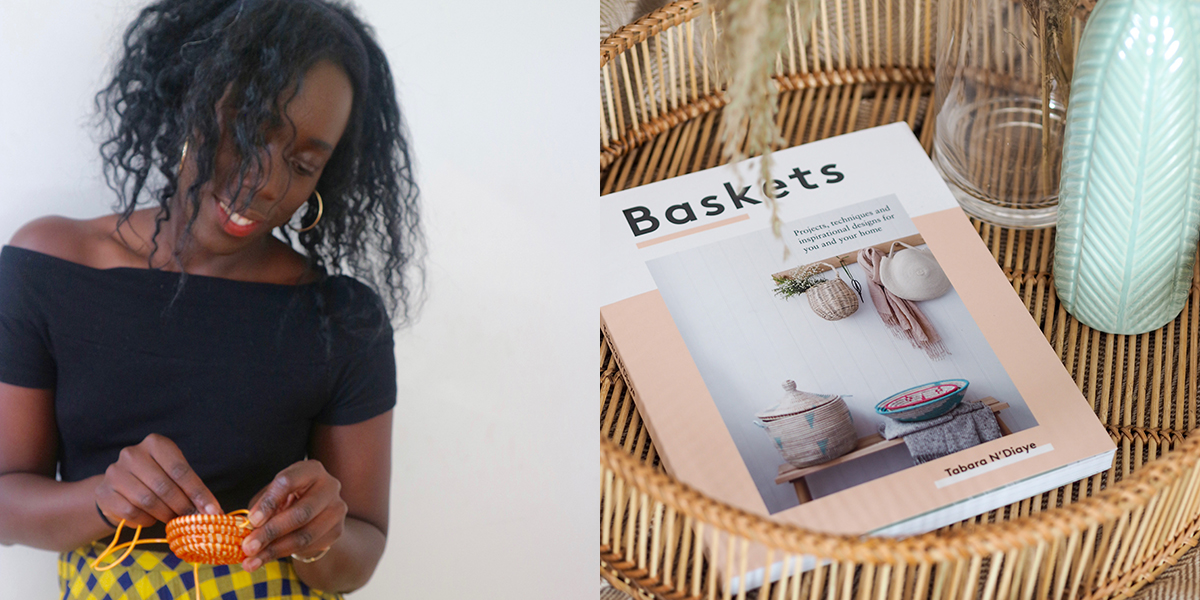Grief is a part of life. Talking about death is something we’d rather avoid , but doing so can alleviate some of the pain and help us grieve. Here ’s to opening up about deep sorrow.
Journalist Lisanne van Sadelhoff’s life was packed full with going out, dinners and work. Until her mother passed away in 2017, that is. While her friends were posting photos of palm trees and flawlessly styled plates of food on Facebook and Instagram, Van Sadelhoff, 26 at the time, felt nothing but intense grief, sorrow she couldn’t share with very many people. “It felt like I had been skinned,” she says.
“Everything was hitting me so hard. Sounds and comments, but also other people’s happiness. I felt this huge gulf between myself and other people my age. I was suffering from mood swings, forgetting to bring gifts to birthday celebrations and I would just burst into tears at parties. After a while, I started feeling ashamed, because it felt like the process was taking too long. We live in a ‘makeable’ society and this idea is only magnified by social media. Unhappy? Take a mindfulness class. Too busy? Go surfing in Bali. None of this works with grief.”
Call if you need anything
Philosopher Martha Nussbaum arrived at the same conclusion, postulating that our society doesn’t know how to deal with grief. In her view, deep connections can lead to intense pain, but we prefer to avoid unpleasant feelings. “A lot of Americans seem to think that you should be able to pick yourself back up again,” Nussbaum said in an interview. “I think that this is why they have turned away from psychotherapy and have all resorted to medication instead. ‘A pill for every problem’, but this isn’t the case, of course.”
Van Sadelhoff wrote a memoir of the deep sorrow she experienced when her mother died, and the often-awkward way those around her responded. As chapter titles, she chose cliché comments she heard during this time, such as ‘The pain will subside’ and ‘Call if you need anything’. “These types of platitudes aren’t much help when you’ve just lost someone,” she says.
“I might have said the same types of things a few years ago, but I know better now. What does help are concrete questions such as, ‘How’s your father doing now?’ This gets a conversation started. A lot of people are afraid to do this because grief forces them to face their own mortality, or that of their loved ones.”
Death as a part of life
How can death become more a part of life? Over the past decade or so, movies such as The Fault in our Stars, UP and A Single Man; Ricky Gervais’ Netflix series After Life and Jonathan Safran Foer’s novel Extremely Loud & Incredibly Close have been making the case for more openness about the subject, and more willingness to at least talk about it. There are also so many online resources available on processing grief, and funerals are becoming more personal occasions (pre-COVID, that is).
We need grief
Yet according to Van Sadelhoff, we’ve still got a long way to go. “I want to help people start applying it to their everyday lives,” she says. “How do we handle grief in the workplace, and what does it mean for your relationship if one of the partners has lost someone? Why do people only get a few days of bereavement leave in most countries, and why is there such a taboo on grief therapy? These are all things we need to discuss with each other. Grief is just as everyday as grocery shopping. Just like we need enough food and drink to survive, we need grief in order to continue to live.”
Vulnerability as a strength
In a series of articles for the news website De Correspondent, Van Sadelhoff examines the different aspects of mourning. And there appears to be a distinct need for this; she received hundreds of responses from readers to her question of whether physical symptoms are normal after the loss of a loved one. ‘Would I have gotten fewer reactions if grief came up as normally in conversation as tomorrow’s weather forecast?’ she wondered. ‘You would need a crystal ball to say for sure, but I believe I would’.
Talking about loss and grief is hard. So hard in fact, that we would rather avoid the subject, or stick to the well-meaning yet not very helpful comments. The danger of this is that it can amplify isolation and loneliness, according to grief counselor Tim Overdiek. “If we don’t speak openly about grief in our society, or are afraid to experience grief publicly, we don’t feel validated in our grief and loss. This can even cause us to doubt if our grief is justified,” he says.
Talking
A former journalist, Overdiek is the author of two books about grief, the first of which he wrote about his first year as a widower with two sons. These days, he’s a therapeutic coach specialized in grief and mourning. Talking about it can have a healing effect, Overdiek says, even when someone is dying—but it’s easier said than done. The male clients he sees in his practice appear to find this particularly difficult. “Sadly, society seems to prefer ‘strong men’ over ‘sad men’,” he explains, “even though showing vulnerability is a sign of strength. Hiding or pushing grief away is unhealthy in the healing process.”
A person’s family and friends can play an important, supportive role, Overdiek emphasizes. One of the interviewees in his second book talks about the Surinamese custom of opening the door right after a loss to anyone who wants to come help out. “People bring food so that the family doesn’t have to cook,” he says. “They come to lighten the family’s load, tell stories, cry and laugh, and to sing beautiful songs of mourning. This enables the family to stay together, and prevents ‘islands of mourning’ from forming, which is crucial since people can lose sight of each other during very emotional times.”
Don’t erase it
Philosopher Stine Jensen wrote a book for children about dealing with loss. In it, she describes the role traditions play in times of mourning. Many Greek villages, for example, still uphold the custom of wearing black for 40 days after someone’s death so that everyone knows that person is having a hard time and can offer them a helping hand. It used to be customary in some Catholic communities to place a bronze cross in front of the house of the deceased for the same reason.
Now that so many of these types of traditions have disappeared, we have to be the ones to ‘design’ how we mourn. “Get inspired by what is possible, not by what is prescribed,” Overdiek advises. “Freedom in mourning; this is what it’s all about. Getting practical help from others and making up a schedule of which friends will cook, babysit, walk the dog and on which days is awesome. But the most important way to support someone is to just be there for them, and to listen when they need you to.”
Grief is not fixable
This is similar to what psychotherapist Megan Devine writes in her book It’s OK That You’re Not OK. She says it’s essential to acknowledge grief and the impact it has on someone’s life. Unfortunately, the way industrialized countries handle grief is ‘broken’, in Devine’s view. “Self-help books, novels and movies glorify grief as a way of achieving personal growth,” she explains.
“Mourning is often seen as a problem to be solved, or something that you will emerge stronger from. But grief is not something you can ‘fix’. One of the greatest misconceptions about grief is that you have to go through certain stages before you can resume living the way you did before. This just isn’t true. Grief is an emotion you have to learn how to carry.”
Company
Devine knows what she’s talking about. Ten years ago, she witnessed her partner, Matt, drown. Even though she has had a lot of experience with loss in her work as a therapist, she was overwhelmed by the reality of it. “We have no idea how to help each other,” she says. “People give advice or try to cheer up the grieving person, but this actually creates more distance. After all, what you’re really saying is ‘Get better, fast!’ and by doing so, you are denying the existence of that person’s grief.
It’s better to keep them company in their suffering. This is hard, but I think that it is a gateway to deeper friendships when we do this for each other. It’s something you can even practice every day. If a friend says that they had a terrible day and dropped a pot of soup, don’t try to erase their feelings by saying, ‘Well, at least the sun’s out!’ Instead, try saying, ‘Do you want me to come over and help clean up?’ Make sure you hear people when they say ‘ouch’. It prepares you for the bigger events better.”
The Elephant in the Room
Devine advocates a worldwide grief revolution. In her view, mourning isn’t a bad thing, but a natural extension of love. “We’re taking the wrong approach to grief,” she clarifies. “Many people tend to see it as a detour from ‘normal’ life, but it’s actually part of it. If you’re not willing to feel pain, you’ll never experience real love. Grief can remind us of this.
This is why it’s actually a nice feeling that my voice still breaks when I talk about Matt. What we need is a culture that accepts this and gives grieving people permission to tell their story. One that understands that you didn’t just lose someone in your past, but also in your future. You will now have to go through every major event without that person. A situation like the COVID-19 crisis can cause you to miss your loved ones even more.”
Journal
Lotte de Schouwer is on a mission to ensure we make death even more a part of our everyday lives. When she heard that her boyfriend’s brain tumor had grown and the odds of prolonging his life were minimal, she decided to start keeping a journal, which was subsequently published as a book.
“I sensed that this was an unusual situation,” she says, “a time that was worth recording. Michiel was only 32 and should have been in the prime of his life. Because we knew it wouldn’t be long, our love flourished and all we had left were the things that really mattered. I learned so much during that time. This is a part of loss that often goes unmentioned.”
The journal is a tribute to their love, but also offers a glimpse into how our society copes with grief. Death is big and unruly, De Schouwer writes—an elephant in the room. It’s strange and painful to have to bring this elephant with you wherever you go, and then to realize that people pretend it’s not there. “People often think, ‘I won’t say anything so I don’t remind her of the pain’,” De Schouwer says.
“But this isn’t how it works. You can’t possibly think that a single day goes by that I don’t think about him. Grief often feels like a suffocating blanket. By taking a more active approach with grieving people, you give them some breathing room. Even if you just touch on their pain briefly, with a comment like, ‘This makes me really uncomfortable, but do you want to talk about it?’, at least you’re indicating that you see the grieving person.”
The Start of Something New
One of the lessons De Schouwer learned was that grief is everywhere, just like our attitude toward it. “Losing your job or going through a divorce can also have far-reaching effects,” she says. “We often don’t talk about these events either. Loss is a tough subject, even though life without loss is impossible. I like listening to the podcast Terrible, Thanks for Asking, in which people have honest conversations about topics we’d rather avoid.
These exchanges show that what we often consider to be the very worst thing can also be the start of something new. And that more people struggle than we realize. This knowledge alone is comforting.”
And time doesn’t heal all wounds, De Schouwer cautions. This is why it’s all the more important to support each other when times get tough. “These days, I can spot grief a lot easier,” she says. “At a party recently, I heard some gossip about someone I hadn’t seen in a really long time. He appeared to be caught in a difficult situation and I thought, that’s got to be painful. In the past my initial thought might have been, we have been out of touch for so long, so who am I to bring it up? I sent him a message instead. And we started talking again.”
Grief in the Time of COVID-19
We need the company of others in order to survive grief, and-according to grief expert Megan Devine on her website, refugeingrief.com-we need it even more so in uncertain times such as during the COVID-19 pandemic. We’re so caught up in our own fears or sadness and don’t have any ‘emotional bandwidth’ left. This can make grieving people feel extra lonely and isolated.
It’s also not unusual to miss the loved ones you’ve lost even more during a time like this, or feel relief because that person has been spared the experience or even angry because you have to go it alone—or all of these emotions at the same time. If making these connections in real life isn’t possible for the time being, Devine recommends looking for an online community with people going through the same thing.
Want to know more?
- Refugeingrief.com: Megan Devine’s e-community that includes blogs, an online Writing Your Grief class, and free printables with grief tips and dos and don’ts for talking about loss.
- When Someone We Love Has Died: a video on coping with grief from The School of Life (YouTube).
- Speakinggrief.org: a public media initiative aimed at creating a more grief-aware society by validating the experience of grievers and helping to guide those who wish to support them.
- Grief Out Loud: a podcast with a mix of personal stories, tips for supporting grieving people and interviews with bereavement professionals. Produced by The
- Dougy Center for Grieving Children & Families.
- Grief Works: a podcast by bereavement specialist Julia Samuel who interviews people about grief.
- The Year of Magical Thinking, a book by author Joan Didion about the first year after the death of her husband.
- Terrible, Thanks for Asking: a podcast by Nora McInerny, a ‘relucant expert in difficult conversations’. She asks real people to share their complicated and honest feelings about how they really are. It’s sometimes sad, sometimes funny and often both.
Text Eveline Stoel Photography Filip Zrnzević/Unsplash.com












